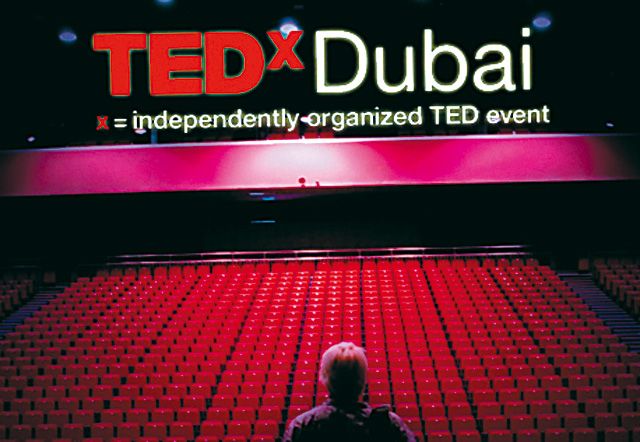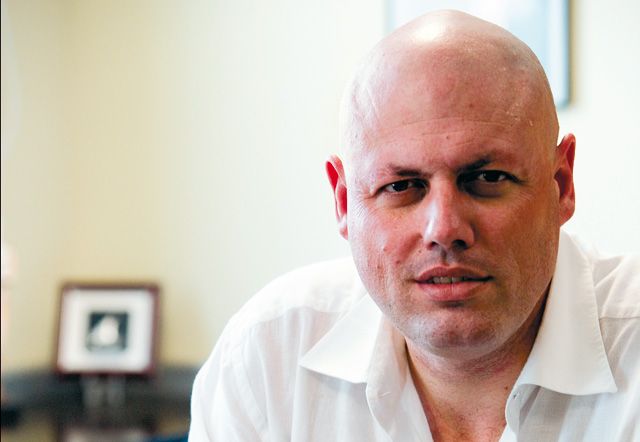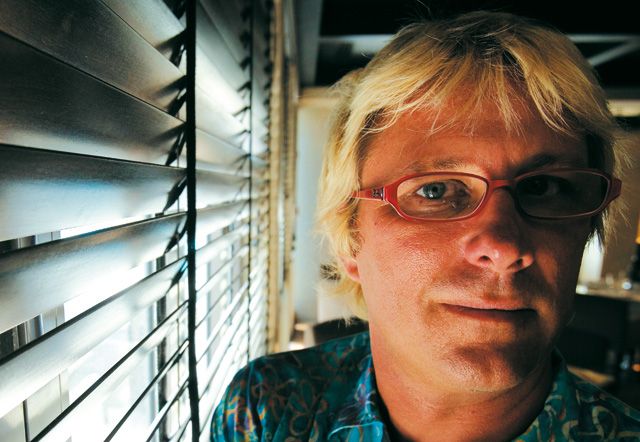Intimidating and inspiring, geeky yet glamorous, TED is a conference like no other. TED (which stands for "Technology, Entertainment, Design") was founded in California by architect Richard Saul Wurman and his partners. The first TED conference included one of the earliest demonstrations of the Macintosh computer and was like a dinner party with brilliant guests. In 2001, TED was acquired by The Sapling Foundation, owned by Chris Anderson, present-day TED curator and media entrepreneur.
Today, TED is one of the most sought-after conferences in the world, with badges sold-out a year in advance. More than a thousand people attend the four-day conference, listening to 50 speakers. All TED talks are about great ideas and inspiring stories, leavened with humour, and told in not more than 18 minutes. The multi-disciplinary content includes science, business, the arts and global issues, interspersed with music, performance and comedy. Among more notable speakers, there has been Al Gore, Bill Gates and Jane Goodall, and the audience stars celebrities from Robin Williams to Jeff Bezos (the audience names are kept strictly confidential).
When videos of TED talks went online in 2006, they became a runaway viral hit. Almost a hundred million downloads have happened of talks as diverse as neuroscientist Jill Bolte Taylor's account of what happened to her during and after a stroke and Sir Ken Robinson on schools killing creativity. His speech, a brilliant mix of humour, anecdote and wisdom, has been the most popular one ever on TED talks.
"It is one of my favourites. One teacher in Liverpool in the '50s had half The Beatles in his class and he missed it. Our education systems are so focused on a certain type of ability that they fail to recognise brilliance," says Giorgio Ungania, sitting in his office at the SAE Institute.
Bringing TED to Dubai
New media expert Ungania decided some three months ago to bring the TED experience to Dubai. Over a 6am coffee with friend and fellow TEDster James Piecowye, professor of visual communications at Zayed University and radio show host, they decided to organise TEDx Dubai. TED allows satellite events called TEDx to be held in cities around the world, carefully vetting speakers, organisers and use of their brand. As Piecowye has already attended a TED conference, Dubai will be allowed to host an independently organised TEDx event (as opposed to the main TED event) with 1,000 seats, instead of the usual 100 seats.
Piecowye had always been a big fan of TED, but its $6,000 badge was a deterrent. He was able to realise his dream, attending the 25th anniversary TED conference held at Long Beach, California, this January, when TED announced a small number of discounted tickets for academics. Piecowye gets to tick off another item on his bucket list this year - being a master of ceremonies at a TED conference, on October 8 at Dubai's Palladium, the venue forTEDx Dubai.
Piecowye talks of the random encounters that are so much a part of TED lore: he bumped into Tim Berners-Lee, creator of the world wide web in the lobby of the hotel where he was staying, heard how Bill Gates helped another attendee de-bug his laptop, saw a whole gamut of celebrities from Al Gore to Cameron Diaz, up close and minus their entourages. Bill Gates famously created a buzz at this year's TED: opening a jar of mosquitos into the elite audience, telling them that it shouldn't just be the poor who experienced malaria. It underscored his point that more money was spent finding cures for baldness than was spent on malaria, mainly because rich people go bald.
"What differentiates TED from any other gathering of this sort, is that it's not just the speakers who are in hyperdrive, but it's the audience too. When you put that together, magic happens," Piecowye says. "It took me six months to transcribe most of my notes and post them online as a blog of TED experiences. When I go back to those notes, it transports me back to that room."
Attending TEDx Dubai
At TED, the audience is as important as the people on the stage. To get that calibre of audience, Ungania and Piecowye want people to talk about what they are really good at, then go online and tell them why they want to attend. "We have bankers, students, insurance people - it's not restricted to those who are technology savvy. Technology helps us get the word out," says Giorgio. "The only people for whom this kind of gathering doesn't hold much appeal are those who are the real pessimists," adds Piecowye.
The financial downturn did not cast its long shadow at TED this January. But TEDx Dubai has not been immune. "We would have got a better reception had times been better," comments Piecowye. "People are weary now, they want to know if we have a hidden agenda. There is none, except sharing the power of ideas. The idea of TED is almost naïve. Maybe we are so jaded by all the business talk that the whole idea of something big starting in your garage is scary."
Ungania believes that TED's non-profit, only innovation and ideas platform holds a profound appeal for sponsors. "Once we announced Leo Laporte as our first speaker, there was a tremendous upsurge in interest. Life may not be as easy as before. The recession has impacted everyone. In times of crisis, people gravitate to the intangible, shunning the materialistic. They want to be inspired and TED is all about inspiration. The world knows Dubai for its landmarks, but it's high time they got to know Dubai for its ideas and people."
Who's coming to TEDX Dubai
(The line-up of speakers at the time of going to press)
- Leo Laporte: tech journalist, broadcaster and podcaster, and current owner and operator of netcast network TWiT.tv. With over 280,000 weekly downloads, his show, This WEEK in TECH, or TWiT, remains one of the most popular podcasts on iTunes and other podcast subscription services.
- Dr Naif Al Mutawa is the creator of THE 99 - the first group of Islamic superheroes. The Kuwaiti father of five wrote a children's tale that won a Unesco prize for Literature in the Service of Tolerance. Dr Al Mutawa's children's books are now used in schools throughout the Arab world. Forbes recently named THE 99 as one of the top 20 trends sweeping the globe.
- Joichi Ito CEO of Creative Commons (creativecommons.org) the global non-profit organisation providing the technical and legal framework for sharing content. Currently, over 250 million pieces of content use a Creative Commons license. Ito is also a Dubai resident. His talk is going to explore the benefits of a ‘sharing economy'.
- Samar Jodha is an Indian photographer who works with marginalised communities, getting children interested in digital photography and supplying them with all the paraphernalia so they can document their world.
- Design consultancy IDEO group, founded by brothers Tom and David Kelley, are sponsors of TEDx Dubai.
TEDX will run from October 8 to 10 and be held at the Palladium Dubai . Admission is free but only by invitation. For more information, go to tedxdubai.com















